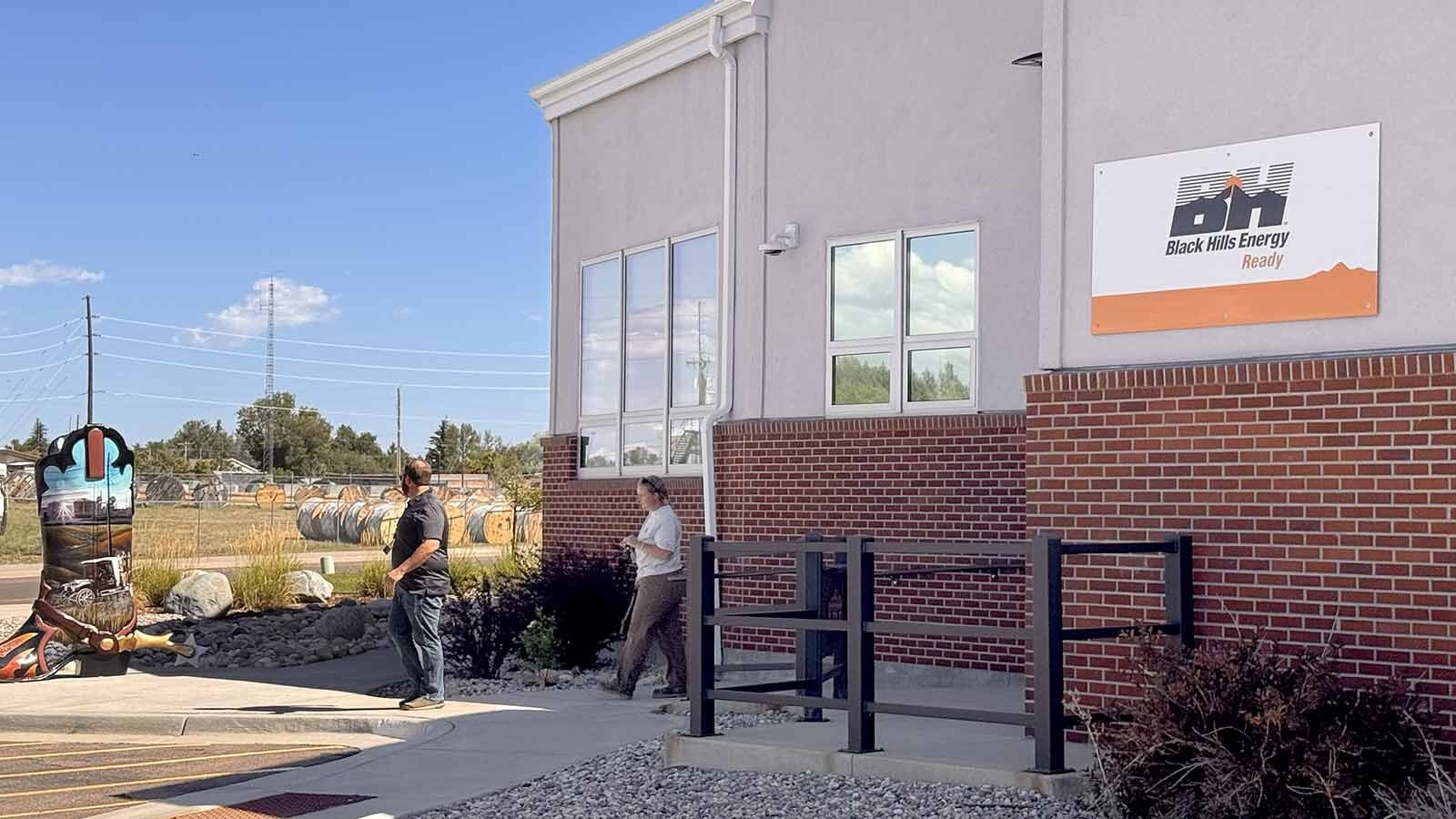Black Hills Energy announced a blockbuster $15.4 billion merger Tuesday with another regional energy provider that the companies say will help them compete with larger utilities.
The all-stock merger with Butte, Montana-based NorthWestern Energy will serve about 2.1 million customers across eight states to form a single company that hasn’t been named yet.
“These two companies have been around for a long time: 142 years for Black Hills Energy and over 100 years for NorthWestern Energy,” said Black Hills CEO Linn Evans in a media call about the merger.
He said the two companies have been talking about the potential to merge for about two decades, and that “we think now is the right time to do that.”
Along with Wyoming, the new company will provide electricity and natural gas across parts of Arkansas, Colorado, Iowa, Kansas, Montana, Nebraska and South Dakota. NorthWestern now has a foothold in Wyoming as the power provider to Yellowstone National Park.
Federal regulators will have to sign off on the merger, which could take about 12 to 15 months, Evans said.
When the merger is final, the Rapid City, South Dakota, home office of Black Hills Energy will be the headquarters for the new company.
Merging will allow the companies to take advantage of efficiencies that can help them compete better for workers and customers, said both Evans and NorthWestern CEO Brian Bird.
“The time is really now for us in terms of making sure we have the appropriate scale and diversity to compete with other utilities,” Bird said. “Not from a service standpoint, but for resources, including people, capital and being able to look at things like data centers.”

What About Rates?
Evans said he understands the first question customers will have is how the merger will impact their electricity and natural gas rates.
The answer is not at all, he said.
“Rates will stay the same as they are today in terms of this transaction,” Evans said. “It’s going to take 12 to 15 months for us to have this transaction approved, and meanwhile we will operate just like we always have.”
What the rates likely won’t do is go down, he said, adding that they also won’t go up as much or as often.
“We won’t necessarily see rates go down,” Evans said. “But because of optimization of our processes, optimization of our business model, we believe customers can see lower rates than they otherwise would have as standalone organizations.”
The merger will allow rates to be impacted “less than they otherwise would,” he added.
Makes Senese
That these two companies would merge seems to make sense, said Rob Godby, an associate professor at the University of Wyoming and a leading energy economist.
The reaction on Wall Street also has been positive, with Black Hills Energy stock up half a percent to $60.88 a share by midday Tuesday, and NorthWestern Energy stock up more than 6% to $58.37 a share.
“I would guess this is probably a mutually beneficial merger,” Godby said. “It seems to make sense, and the market seems to agree as their stocks are both up.
“It really does look like a merger that makes sense territory-wise, it makes sense network-wise and it’s clearly not a buyout. They’re merging their boards, the share transaction is nearly equal.”
Godby agrees that as a single, larger company, the power provider can better compete for financing and deals.
“A larger company has benefits, and it allows them to make better deals, access capital more easily, and what’s also good is that neither company has a lot of debt,” he said. “The bottom line is, they’re approximately equal.”
Bird agrees, saying the merger is needed to adapt to “a rapidly evolving energy landscape.”
That both are rural energy providers means the companies share similar values and are less likely to clash in how they serve their customers, Godby said.
“These are interesting times in the energy business as we see rising costs across the nation,” Evans said. “And it’s not lost on us that we want to be able to serve our customers as efficiently and cost-effectively as we possibly can.”
About Those Data Centers
One of those evolving challenges for energy providers — especially in Cheyenne and southern Wyoming — is meeting a fast-growing demand for electricity-gobbling data centers.
Both Evans and Bird said one larger company doesn’t come across to potential large customers as being too small to handle their needs.
“I think this is going to help us,” Evans said. “We’ve been serving data centers in the Cheyenne region now for more than a decade starting with Microsoft, soon to be adding Meta. … We’re talking to other companies who want to locate in Cheyenne.
“And quite frankly, as we talk to them, as a smaller organization, we have to be extremely creative in how we do that.”
Greg Johnson can be reached at greg@cowboystatedaily.com.





